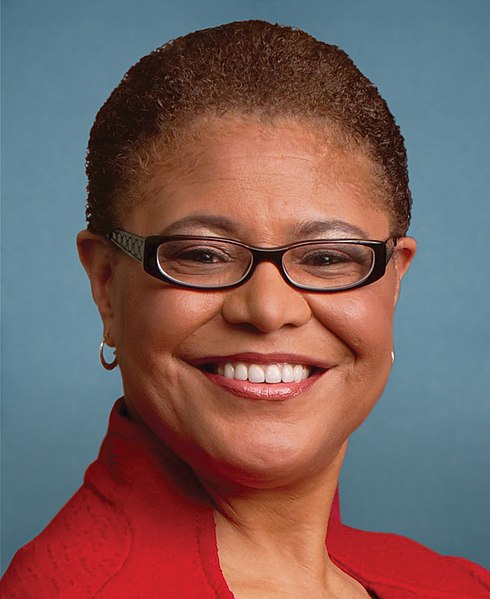Let’s consider the home life of Trayvon and many other black
youth. The young Florida resident was born into an illegitimate family, where
the parents were not married. If Rep. Bass wants to promote justice for young
black youth, she should start by investigating the break-down of the black
family in the United States. Why are there so many black children born out of wedlock?
Home come must young boys do not even know who their father is? Congresswoman
Bass, can you explain to your constituents why more than half of black children
are born in single-parent homes?
Then there’s the schooling that most black youth endure. Rep.
Bass, would you like to explain why so many children suffer in substandard
schools in your Los Angeles/Culver City district? Perhaps you would also like
to explain to your voters, and the rest of the residents in Southern
California, why you and your party resist school vouchers, school choice, and a
better education for all youth. The first step towards improvement in this life
must focus on a good education. For most black youth, they do not feel safe,
let alone certain about the education they hope to get in the inner-city
schools. Instead of standing up to young children who already lack discipline,
structure and character because of their broken home life, school officials
enable minority youth’s sense of victimhood and entitlement with feel-good
history which does them no good at all. Public standardized testing is an
insult students’ potential, as well as their skills, and instead of a healthy
dose of critical thinking, schools embrace multiculturalism, feeding empty
self-esteem pabulum to children instead of loving them and holding them to a
higher standard.
 |
| When will Rep. Karen Bass support reforms like school choice? |
Then there are the failures that minority youth face in the
world at large. How many youngsters drop out of school rather than suffer
through the substandard, unsafe, and unreal education of their local schools?
The life of drugs and gang-banging offers excitement and easy money, much more
than barely getting by with a diploma which means next to nothing. Without
fathers, without role models, black youth enter the world with little idea of
what to expect, and much to fear. Having no identity or security, they try to
create both on their own in their beaten-down and crime-infested neighborhoods.
Instead of coddling feelings and enhancing a race-based
sense of grievance and entitlement, Rep. Bass, why don’t you provide the black
youth in your district proper African-American role models? Tell them about
Frederick Douglass, who demanded that the
government allow the black man to stand on his own. Tell them about Booker T.
Washington, who refused to cave in to racism mired with intellectual grievance.
He went from share-cropper to University Trustee, without a smidgen of guilt or
entitlement.
Educate young black children about Edward Brooke, the first
popularly elected African-American US Senator. Yes, he was a Republican, and to
this day he is not ashamed to say so. He never ran for office based on his
color, but always on his character. “You can believe in Brooke” was his
campaign slogan for the US Senate. Reflecting on his life, he offered the following
advice to young black children: “Get a work ethic.” Not gang-banging, not
hustling, not a life based on casual sex and improvident choices, but working. “There
are not easy paths to success,” Brooke then shared. He also told them to be
brave: “Your place is anywhere you want it to be. You make that decision. It’s
left up to you.”
 |
| Justice for Trayvon starts with cultural changes Not protests and public agitation |
If Trayvon Martin had followed Sen. Brooke’s advice, he would
not have gotten suspended from school for ten days. He would not have been
smoking pot, wandering around in a dark, unknown neighborhood. Instead of a
violent death (one all too common for black youth), he would have grown into a
strong man, making his way in the world, choosing his place.
If you want “Justice for Trayvon”, Rep. Bass, stop playing
the race card of grievance and victimhood, all too common in the black
community. Promote policies which strengthen the black family, improve their
education, and help all black youth make it in this world.
No comments:
Post a Comment